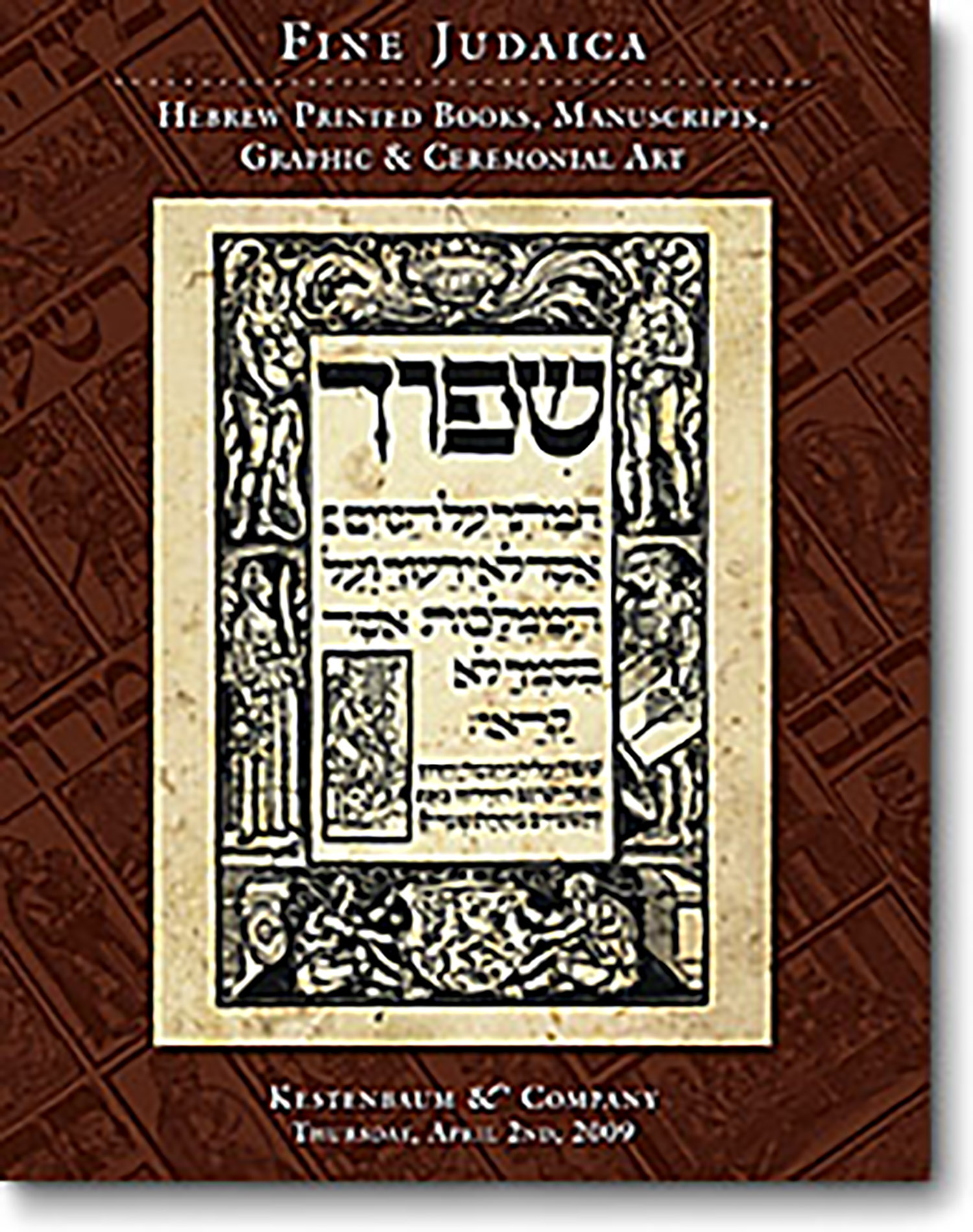Soloveitchik, Moshe. Autograph Letter Signed in Hebrew to R. Aaron Teitelbaum in praise of the writer's son, Rabbi Joseph Dov (Baer) Soloveitchik of Boston

AUCTION 43 |
Thursday, April 02nd,
2009 at 1:00
Fine Judaica: Hebrew Printed Books, Manuscripts, Graphic & Ceremonial Art
Lot 296
(SOLOVEITCHIK, JOSEPH B.)
Soloveitchik, Moshe. Autograph Letter Signed in Hebrew to R. Aaron Teitelbaum in praise of the writer's son, Rabbi Joseph Dov (Baer) Soloveitchik of Boston
New York: 15th Tammuz, 1935
Est: $5,000 - $7,000
Historic letter relating to Rabbi J.B. Soloveitchik's Campaign for Appointment as Chief Rabbi of Tel Aviv.
In 1935 the Chief Rabbi of Tel-Aviv, Rabbi Solomon Hakohen Aronson passed away, thus ensued a search for a successor. The competing candidates were Moses Avigdor Amiel (1883-1946), since 1920 Rabbi of Antwerp, and the relatively young Joseph Dov (Baer) Soloveitchik (1903-1993), since 1932 Rabbi of Boston. Soloveitchik's father, R. Moshe Soloveitchik, engaged in intensive lobbying to secure the position for his son, ultimately to no avail as R. Amiel was elected Chief Rabbi
R. Moshe Soloveitchik (1876-1941) was the son of R. Chaim Halevi Soloveitchik of Brisk (“R. Chaim Brisker”), renowned for having revolutionized the Talmudic method of analysis. R. Moshe, besides transmitting R. Chaim’s teachings, applied his unique methodology to develop novellae of his own. After a brief stint in the rabbinate, first in Rassein, and later in Chaslavitch, Russia, R. Moshe taught Talmud in the Tachkemoni School of Warsaw. Thereafter, he was appointed Rosh Yeshiva of Yeshiva R. Yitzchak Elchanan (Yeshiva University), New York, where he taught until his death.
R. Moshe commenses his letter by excusing himself saying, "A father may not testify about his son," however he goes on to sing his son's praises and qualifications for the job: "He is sui generis…truly new, yet possessing the genius and piety of old." R. Moshe believed that though in previous generations it simply was not possible to combine the wisdom of Torah with secular wisdoms, in the present generation it is indeed possible. Instructive in this vein is the appellation for his son: "Ha-Gaon ha-amiti, Harav R. Yosef Duber Halevi, Dr. Soloveitchik". R. Moshe mentions that his son "studied and knows all, even Zohar and Moreh Nevuchim. As proof of his excellence in secular wisdom, R. Moshe writes that his son received his doctorate in Philosophy from the University of Berlin. R. Moshe concludes by attempting to dispel the notion that his son (in his thirties at the time) is too young for the position.
Rabbi Aaron Teitelbaum (1890-1950), a native of Jerusalem moved to the United States in 1912 as an emissary on behalf of the Yishuv. He became a force in the development of the Joint Distribution Committee ("Joint"), whereby he was able to provide funding for the yeshivoth in Eretz Israel, to where, in 1933, he returned.
The Manfred Lehmann Collection possesses a parallel letter from R. Moshe Soloveitchik to Jacob Joshua Bauminger, Secretary to the Religious Council of Tel-Aviv, dated Ellul 19, 1935. Lehmann wrote: "As we all know, the vote, two months later, fell on Rav Amiel, and it was through this historic decision that Providence saved the Rov (Soloveitchik) for America. Orthodoxy in America was thereby totally reshaped, for which we must be profoundly grateful." See EJ, Vol. II, cols. 846-7; Vol. III, col. 496; Vol. XV, cols. 127-8, 132-3. A third such letter was offered at auction, Kestenbaum & Company, Sale 38, Lot 313
